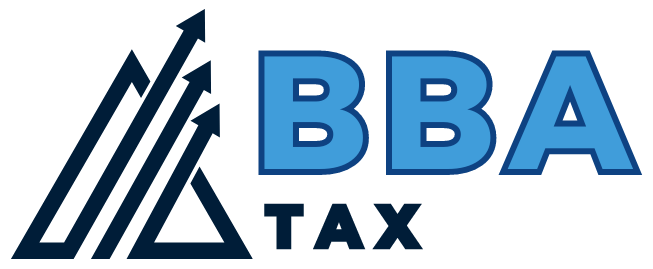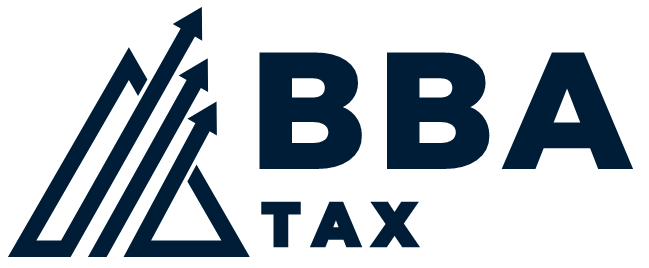Navigating taxes can be challenging, especially when balancing both personal and corporate tax obligations. Understanding the distinctions between corporate and personal taxes is crucial for individuals and businesses alike, as each tax type has unique regulations, rates, and potential deductions. In this guide, we’ll explore these key differences in depth, with insights on how BBA Tax can assist Ottawa residents and businesses in managing both personal and corporate tax requirements.
Table of Contents
- What are Corporate Taxes?
- What are Personal Taxes?
- Key Differences Between Corporate and Personal Taxes
- a. Tax Rates
- b. Filing Requirements
- c. Deductions and Credits
- d. Record-Keeping and Reporting
- Understanding Tax Residency for Corporations and Individuals
- Corporate Income Tax Structure in Canada
- Personal Income Tax Structure in Canada
- Common Corporate Tax Deductions and Credits
- Common Personal Tax Deductions and Credits
- How Corporate and Personal Taxes Affect Self-Employed Individuals
- Benefits of Hiring an Ottawa Tax Accountant for Corporate and Personal Taxes
- How BBA Tax Can Help with Your Corporate and Personal Tax Needs
1. What are Corporate Taxes?
Corporate taxes are taxes levied on the profits of a corporation. In Canada, all businesses, from small start-ups to large enterprises, must file corporate tax returns if they operate as incorporated entities. These taxes are based on the net income of the company after business expenses have been deducted.
Corporate tax rates vary depending on factors such as the size of the corporation and the type of income. Corporations may also be subject to additional taxes, including provincial and territorial taxes.
2. What are Personal Taxes?
Personal taxes in Canada are income taxes that individuals pay on their earnings. Personal income includes wages, salaries, investments, and other forms of income. Personal tax obligations can vary widely based on factors like income level, province of residence, and eligible tax credits or deductions.
Each year, individuals must file a T1 tax return with the Canada Revenue Agency (CRA), reporting all income sources and eligible deductions.
3. Key Differences Between Corporate and Personal Taxes

a. Tax Rates
- Corporate Tax Rates: Corporate tax rates in Canada are generally lower than personal tax rates, especially for small businesses that qualify for the Small Business Deduction (SBD). This tax benefit reduces the federal tax rate on the first $500,000 of active business income, encouraging small businesses to grow.
- Personal Tax Rates: Canada has a progressive personal tax rate system, meaning higher-income individuals pay a higher percentage of tax. Federal and provincial tax rates vary, making the total rate dependent on income level and location.
b. Filing Requirements
- Corporations: Corporations must file a T2 tax return annually, even if they have no taxable income. The filing deadline for corporations is six months after the end of the fiscal year.
- Individuals: The personal tax filing deadline is April 30th each year. Self-employed individuals have until June 15th, though any taxes owed must be paid by April 30th to avoid interest.
c. Deductions and Credits
- Corporate Deductions: Corporations can claim a variety of expenses, such as operating costs, salaries, and depreciation of assets. There are also specific credits, like the Small Business Deduction.
- Personal Deductions: Personal deductions include Registered Retirement Savings Plan (RRSP) contributions, medical expenses, and other credits designed to reduce taxable income.
d. Record-Keeping and Reporting
- Corporations: Accurate, detailed records are essential for corporate tax filings, as CRA audits are more common for businesses.
- Individuals: Individuals need to keep track of employment income, investment earnings, and any receipts for eligible expenses. While CRA may request documentation, personal tax filing is generally less complex.
4. Understanding Tax Residency for Corporations and Individuals
Both corporate and personal taxes rely heavily on residency:
- Corporate Residency: A corporation is generally considered a resident in Canada if it’s incorporated in Canada or if its central management is located within Canada.
- Individual Residency: Personal tax residency is based on ties to Canada, including family, home, and economic connections. Residents of Canada are taxed on their worldwide income.
5. Corporate Income Tax Structure in Canada
Canada’s corporate income tax system has two primary components:
- Federal Corporate Tax: The federal rate is typically 15% for general income and 9% for small businesses eligible for the SBD.
- Provincial Corporate Tax: Each province adds its tax rate, ranging from 2% to 16% depending on the region and type of income.
6. Personal Income Tax Structure in Canada

Personal tax rates are progressive, with rates increasing for higher income brackets. Each province also has its personal income tax rates, which are added to the federal rates. For example, residents in Ontario have both federal and Ontario tax rates applied to their income, based on income levels.
7. Common Corporate Tax Deductions and Credits
Key deductions and credits for Canadian corporations include:
- Small Business Deduction: Reduces the federal tax rate on the first $500,000 of active business income for Canadian-controlled private corporations (CCPCs).
- Capital Cost Allowance (CCA): Allows corporations to depreciate assets like buildings, equipment, and machinery over time.
- Scientific Research and Experimental Development (SR&ED) Tax Incentive: Encourages corporations to invest in research and development.
- Business Expenses: Corporations can deduct various expenses like advertising, insurance, rent, utilities, and more.
8. Common Personal Tax Deductions and Credits
Common deductions and credits available to Canadian taxpayers include:
- RRSP Contributions: Reduce taxable income and encourage retirement savings.
- Tuition Tax Credit: Offsets the cost of post-secondary education for students and their sponsors.
- Medical Expense Tax Credit: Provides relief for certain medical expenses not covered by insurance.
- Home Office Expenses: Self-employed individuals can deduct a portion of their home expenses if they use a part of their home exclusively for business.
9. How Corporate and Personal Taxes Affect Self-Employed Individuals
Self-employed individuals in Canada file personal tax returns, but they can deduct certain business expenses, like those available to corporations. This allows them to reduce their taxable income, making tax planning essential.
10. Benefits of Hiring an Ottawa Tax Accountant for Corporate and Personal Taxes

Hiring an Ottawa tax accountant offers numerous benefits:
- Expert Guidance: A professional accountant stays updated on tax changes and knows the optimal strategies for tax savings.
- Time Savings: Managing both corporate and personal tax requirements can be time-consuming. A tax accountant streamlines the process, allowing you to focus on your business.
- Audit Support: In the event of a CRA audit, an accountant provides valuable support, ensuring compliance.
- Optimized Deductions: A knowledgeable accountant ensures you claim all eligible deductions and credits, maximizing your savings.
11. How BBA Tax Can Help with Your Corporate and Personal Tax Needs
At BBA Tax, we provide specialized services for both corporate and personal tax clients, offering tailored solutions for businesses and self-employed individuals in Ottawa.
Our services include:
- Bookkeeping: Reliable bookkeeping ensures all expenses and income are accurately recorded.
- Tax Preparation and Filing: Whether you’re an individual or a corporation, we ensure compliance and accuracy.
- Business Incorporation Services: For entrepreneurs looking to incorporate, we help navigate the process and understand the tax benefits.
- Audit Defense: Our experienced team provides representation and guidance through CRA audits.
Understanding the differences between corporate and personal taxes is essential for effective tax planning and compliance. Whether you’re a business owner, a self-employed individual, or an Ottawa resident with personal tax needs, having a clear understanding of tax obligations can help you make better financial decisions and potentially reduce your tax burden.
With the expert assistance of BBA Tax, you can simplify the complexities of taxes and ensure both compliance and optimization of deductions. Contact us today to see how we can assist with your personal and corporate tax requirements in Ottawa.



